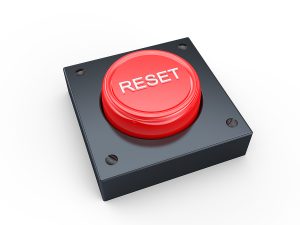Yesterday I heard Dr. Sanjay Gupta lead an inspirational session here at the American College of Sports Medicine (ACSM) meeting. His question: At some point many people make a  major life change by hitting a reset button – so what does it take for people to hit the reset button for healthier choices for their lives? What can we do to help?
major life change by hitting a reset button – so what does it take for people to hit the reset button for healthier choices for their lives? What can we do to help?
He was showcasing some of CNN’s Fit Nation challenge participants and what led them to make big changes. But not everyone will have the opportunity to join a national challenge that provides support and motivation.
So I thought of people that I’ve worked with – what motivated them to seek and sustainmajor change? Here are three examples:
1. “I’m too young to have high risk for heart disease.” Free lipid tests during heart health month proved motivating for many college students I worked with. One young man in particular stands out because high triglycerides and other risk factors got his attention. He took my diet and exercise recommendations seriously, cutting out soda, reducing alcohol and running 3-4 times a week. Six weeks later he followed up with his doc and retested his lipids with great results. He came back the next year, having hit his reset button, thrilled to see his risk factors reduced.
2. “I’m not the fit, trim person I thought I was.” A fitness assessment at a health fair jolted a nutrition professor’s view of himself when he learned he was overweight and had poor fitness. Completely humbled, he joined aerobic classes and followed the nutrition advice he knew ( but hadn’t thought he needed). Those habits stuck, he lost weight, got in shape and entertained many classes with his success story for years.
3. “My child is mimicking my unhealthy habits.” Last year AICR challenged 8 people to lower their risk for cancer and other chronic diseases by taking the New American Plate Challenge. One of the participants was motivated by her own need to lose weight, but also to help her family be healthier. She wanted her young daughter to grow up having developed healthy habits early in her life. Twelve weeks later she reported a shift in her attitude toward eating and physical activity. Although she hadn’t been “perfect” she felt physically better and more empowered to make better choices for her family and to keep building on small successes.
All these people had a moment when they realized they needed to commit to a different way of life – and they did hit their reset button. But making behavior change stick means you have to keep hitting that button, usually in small ways. It means choosing water instead of soda everyday, finding time to be active everyday and cooking more meals at home. So yes, go ahead and embark on a big challenge, but keep the small, everyday challenges in mind that make the big challenge work.
Have you ever hit your reset button and made a major change in heath habits?





